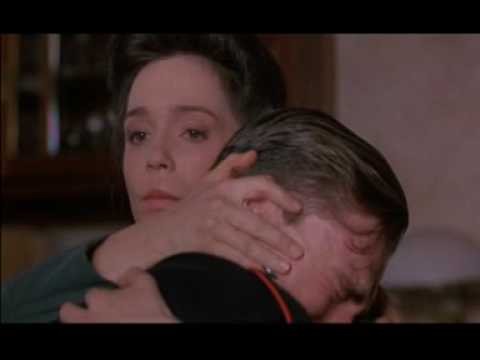I cry at movies. A fair amount. I couldn’t give you a comprehensive list of movies I’ve cried at, and I’d be embarrassed to anyway. Sometimes, it’s not as much about the movie itself as the state of mind I’m in at the time. It happens; I’m emotionally unstable. Found to be so by a branch of the federal government, if you’re curious. So I cry a lot about movies, and sometimes, that crying makes me mad, because it was such a stupid movie. But sometimes, yes, I succumb to deliberate emotional manipulation—and I don’t think there’s anything wrong with that.
I’ve talked before about what makes you cry, but that piece does not, I think, go far enough. Because I think it’s perfectly okay to cry even at commercials that are clearly intended to tug on your emotions in order to get you to buy a product. I think it’s just as acceptable, in fact, as laughing at funny commercials.
We devalue tears. We think of it as universal, but it isn’t. There are a lot of cultures that have approved of tears, and that’s in men and women. Stoicism isn’t universally “manly.” Hell, not all the Greeks disapproved of tears, and that’s where we get terms like “stoic” in the first place.
“Weepy” has been a derogatory term for a certain kind of movie for decades. Sure, it’s fallen out of fashion, but the disdain of the general public for that sort of movie, for all its popularity, has not. A lot of people buy tickets to them, but even women don’t like to admit that they do. There’s a mockery to any discussion of them, even when one or more of the people in the conversation really likes the movie in question, whatever it is.
I’ll give you an example. I saw Swing Kids in the theatre when I was in high school. I went with two friends. At the end of the movie, I was sobbing. Friend A was crying, but not as hard as I was. Friend B was a little choked up. In the bathroom after the movie, I was still crying, about as hard as Friend A had been. (I take a while to wind down sometimes.) Friend A was still a little choked up. Friend B was pretending not to know us. Now, at the movie’s end, she had been just as emotionally involved as we were. But rather than acknowledge that it had been a moving experience, she felt the need to distance herself from the two hysterical weirdos. And we weren’t even crying all that hard anymore.
Don’t get me wrong; I’m not defending Swing Kids as High Art, here. It’s silly and manipulative and historically suspect as all hell. (Though it does have a great cast, if nothing else!) I love it unabashedly, but I don’t know how much of that is the quality of the film and how much of that is nostalgia for a time in my life when going to the movies was a lot easier and more enjoyable. Could be a bit of both. But for our purposes, the quality of the film is not relevant. Whether the tears were caused by a quality film, emotional catharsis, my own personal instabilities, or the fact that I had crappy taste when I was fourteen doesn’t matter. What matters is that there was nothing inherently wrong with crying, any more than there was with walking out of Wayne’s World laughing around the same time.
What worries me even more is the idea that society won’t just be shaming my son out of crying at movies, it will be trying to shame him out of crying when something in his actual life makes him want to cry. I was proud of a friend’s husband with whom I saw Toy Story 3 because he was crying and not trying to hide it. I’m not saying I want my son to cry at The Notebook—I’ll level with you; I don’t want him to watch The Notebook. But if he doesn’t cry the first time he sees Grave of the Fireflies (which will obviously be quite a few years from now), I’m going to be a little worried.

